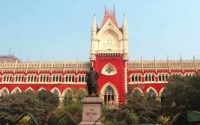$100 Website Offer
Get your personal website + domain for just $100.
Limited Time Offer!
Claim Your Website Now‘If you become investigator, prosecutor and judge, why are we here?’: Bombay HC on media trials
Source:-https://www.nationalheraldindia.com
The Bombay High Court on Wednesday expressed concerns over the practice of “media trial” while hearing a batch of petitions seeking regulations on the reportage of the Sushant Singh Rajput death case, legal news website LiveLaw.in has reported.
“If you become the investigator, prosecutor and the judge, what is the use of us? Why are we here,” a bench comprising Chief Justice Dipankar Dutta and Justice G S Kulkarni asked advocate Malvika Trivedi, the lawyer representing Republic TV.
If you are so interested in unearthing the truth, you should have looked at the CrPC! Ignorance of law is no excuse,” the bench told Trivedi.
The lawyer submitted that the channel was doing “investigative journalism” and was pointing out the defects in the investigation.
Trivedi submitted that the court cannot say that the media should not point out the lacunae in the investigation and that truth should not be reported.
In response, the bench stated that it was not suggesting that the media’s throat should be throttled but was only concerned about the compliance of the Programme Code.
“We are only on the short point as to whether the Programme Code is violated or not & whether your reporting contravenes any of the laid down norms or not,” the Court said.
“We are only saying you must know your boundaries and within your boundaries, you are allowed to do everything. Do not Cross-Over,” the bench added.
The bench also asked the lawyer of Republic TV if asking the public who should be arrested in a case is part of investigative journalism. This was in reference to the hashtag campaign ‘#ArrestRhea’ run by the channel in Twitter following the death of Bollywood actor Sushant Singh Rajput.
“Is this part of investigative journalism? Asking public about their opinion on who should be arrested?” the bench asked Trivedi.
“When a case is under investigation and the issue is whether it’s a homicide or a suicide and a channel is saying it is murder, is that investigative journalism?” the bench asked.
The bench told the channel’s lawyer “investigative powers are given to the police under the CrPC”.
The bench also expressed its disapproval at the manner in which Sushant’s death was reported.
“There are certain suicide reporting guidelines. There should be no sensational headlines. Don’t you have respect for the dead? It is so unfortunate,” the bench remarked.
Advocate Kunal Tandon, appearing for Times Now, urged the bench not to disturb the ‘self-regulation’ model for media as envisaged by the Supreme Court in the Sahara case judgment.
“Ultimately there has to be a Lakshman Rekha with certain issues to it – there may be popular views, there may be unpopular views. A news report has to be read in whole and a liberal man will look at it wholly,” he submitted.
The Court also heard the lawyers of Aaj Tak, India TV, Zee News and ABP News.
When the lawyer for Zee News told the bench that there are redressal mechanisms available for a person aggrieved, the court said that such remedies, be it approaching the self-regulatory bodies, government or the courts, all come into picture only after the damage has been done.
“These are all aspects after the damage has been done. But how will the person get justice after damage has been done? How does a person in a village or remote place get justice?” the bench asked.3



